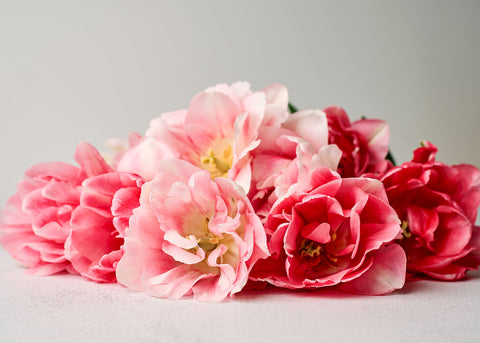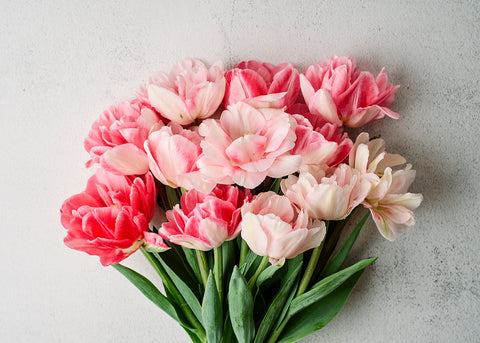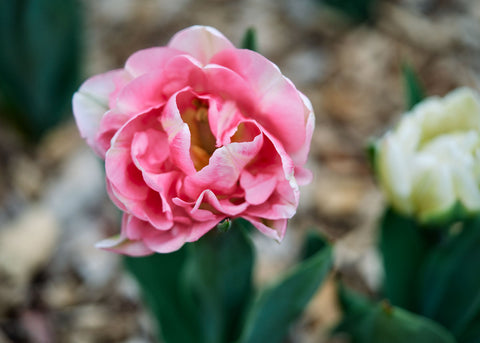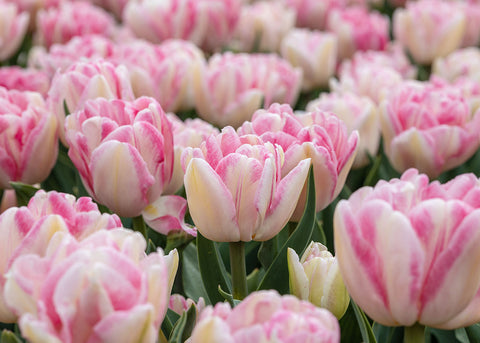









Foxtrot - Tulip Bulbs
🚚 FREE SHIPPING for all orders over $79!
Choose the right planting site:
Tulip bulbs thrive in well-draining soil with a neutral ph. Ensure the site receives at least six hours of daily sunlight.
Timing is key:
Plant tulip bulbs when the soil temperature has cooled to around 55°f, typically after a few weeks of cooler weather. Planting too early can hinder root development.
Soil preparation:
Prepare the soil by removing weeds and debris. Tulips prefer sandy loam soil, which offers good drainage, root permeability, and nutrition.
Consider wildlife:
If deer or rabbits are a concern, plant tulips in a spot less tempting to these animals. Avoid areas with invasive tree or perennial roots.
Adequate drainage:
Tulips dislike wet feet, so avoid planting them in areas with poor drainage, excessive water, or standing water. Ensure proper water drainage to prevent bulb rot.
Avoid disease:
Plant tulips in soil free from diseases such as botrytis blight. Avoid previously infected areas and maintain good garden hygiene.
Soil amendments:
Use neutral ph soil amendments specifically designed for flower bulbs. Avoid acidic or alkaline amendments, as they hinder root growth.
Planting depth and spacing:
Dig holes 6 to 8 inches deep, placing each bulb with the pointed end facing up. Space bulbs 6 inches apart to allow room for growth.
Fertilization:
Tulip bulbs come with the nutrients they need. If growing them for multiple years, top-dress with a granular organic fertilizer three times a year.
Mulching:
Apply a 2-inch layer of mulch after the ground freezes to retain soil moisture and protect bulbs from temperature fluctuations. Remove it before spring sprouting.
Enjoy blooms:
Tulips typically bloom best in the first year. Allow the foliage to naturally die back before removing it. Do not cut stems for bouquets from display tulips.
Separate cutting garden:
If you want to cut tulips for arrangements, create a separate cutting garden. Cutting stems reduces the bulb's vitality for future blooms.
Zone-specific considerations:
In warmer climates (zone 8 and above), tulip bulbs need prechilling in a refrigerator for at least ten weeks before planting.
Lifespan and care:
Most tulips perform best in their first year. If growing them for multiple years, maintain proper care, dead-head spent flowers, and nourish the bulbs.
NON-GMO
Open-pollinated seeds perfect for seed saving
HIGH QUALITY
Third-party lab tested to ensure strong germination and seed vitality
100% SATISFACTION
We'll make it right if there's a problem
HAND PACKED
Created with love in Pottstown, PA
ORGANIC SEED
140+ Organic and Certified Naturally Grown varieties available
FREE SHIPPING
Fast & free shipping on orders $79+
